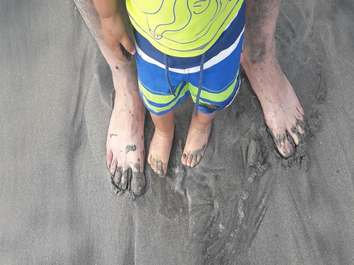The Devastating Effects of Helicopter Parenting
The September 2015 issue of Psychology Today posted an article entitled Declining Student Resilience: A Serious Problem for Colleges. The article summarizes the findings of a recent study done on University campuses. The findings cite a dramatic decline over the past few decades in children’s opportunities to play, explore, and just be kids. In addition, children are experiencing anxiety, depression and a decreased sense of control over their lives. The researchers suggest that over-involved parenting is partially to blame.
The article explains, “We have raised a generation of young people who have not been given the opportunity to learn how to solve their own problems. They have not been given the opportunity to get into trouble and find their own way out, to experience failure and realize they can survive it, to be called bad names by others and learn how to respond without adult intervention.”
The article continues, “So now, here’s what we have: young people, eighteen years and older, going to college still unable or unwilling to take responsibility for themselves, still feeling that if a problem arises they need an adult to solve it.”
God Is Not A Helicopter Parent
Some Findings From the Study
Below are some specific findings from the study:
- Emergency calls to on-campus counseling centers have more than doubled over the past five years
- Students are increasingly seeking help for problems of everyday life. They have emotional crises over such common situations as being insulted or made fun of.
- Increasingly, students and their parents are asking the personnel at Universities to act as substitute parents
- Rates of anxiety and depression among American college students have soared in the last decade. Many more students than in the past come to campus already on medication for such illnesses.
Jill Bradley-Geist and Julie Olson-Buchanan recently conducted a survey of 482 undergraduate college students. They found a direct connection between Helicopter Parenting and students’ difficulty in flourishing away from their parents.
Helicopter Parenting of College Students
High Helicopter Parenting Leads to Low Self-Competence
The students who reported having experienced high levels of helicopter parenting scored the lowest in terms of feelings of self-competence. They were also the least flexible in responding to workplace scenarios.
For example, the study found that if they received a negative performance review from an employer they would be likely to quit the job. They might also explain to the employer why the rating was unfair or ask a parent to call the manager on their behalf. A healthier student might listen to criticism and try to improve.
Another survey of 339 college students and their parents on entitlement showed that students who had the most controlling and intrusive parents received the lowest scores in self-competence. They also received the highest scores in entitlement.
Other studies of college students have shown a clear correlation between helicopter parenting and reduced feelings of competency and reduced satisfaction with life. There were instances of greater depression and alienation from peers. In addition, students more likely self-medicate for anxiety or depression or use pain medicines for purposes other than reducing pain.
Parents Take Responsibility for Child’s Well-Being
What do we take from all of this? In today’s society, parents are feeling more responsible for their children’s emotional well-being than in past generations. It may be due to the fact that we live in an increasingly hostile world. In today’s world, school bullies destroy lives. Disturbed children aren’t afraid to go into a school with a gun and kill innocent children.
Maybe it’s because as a society we are increasingly involved in the rat race. We compete with others to make sure our kids ‘get ahead’ and have all of the advantages we want them to have. However, there are much better methods for parents to use than helicopter parenting to ensure their children are well-prepared for living on their own someday.
Whatever the reason, we as parents need to take a close and careful look at our parenting. We must decide IF and WHERE we are overstepping our bounds. Your child may be experiencing a problem whose solution process will help him to grow. If it’s not a dangerous or life-threatening problem, I suggest that we cheer our kids on from the sidelines. As they struggle, they will learn to find solutions to their problems.
Some Lessons Are Best Learned at Home
It’s easiest for them to learn these lessons while they still live at home. Being in a safe and encouraging environment can help tremendously. We can offer ideas as needed and help them nurse their wounds and hurts. We can support them and root for their successes. In the meantime, they can be out there learning how to solve the problems the world throws their way.
There are some great in-depth resources for empowering your kids to make their own decisions and solve their own problems. One of these is “Love and Logic” by Foster Cline and Jim Fay. Although not overtly Christian, the principles in the book are very healthy and Biblically based. Another excellent resource is “Loving Your Kids on Purpose” by Danny Silk.
